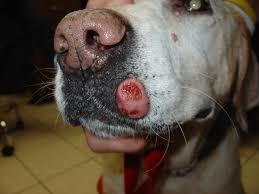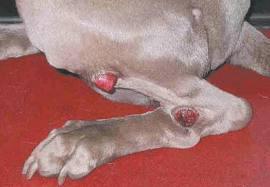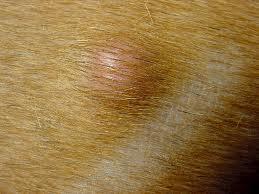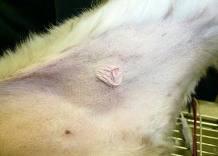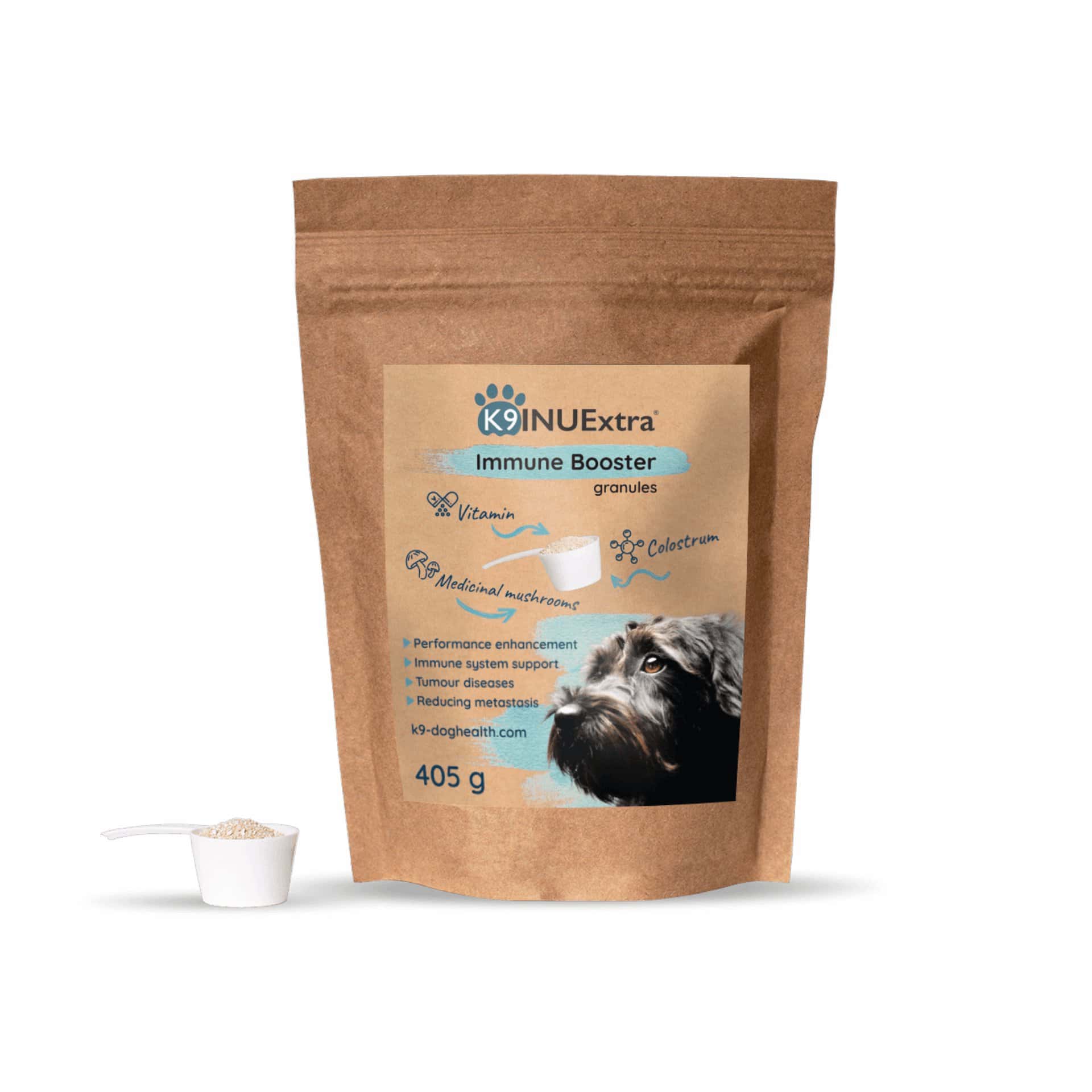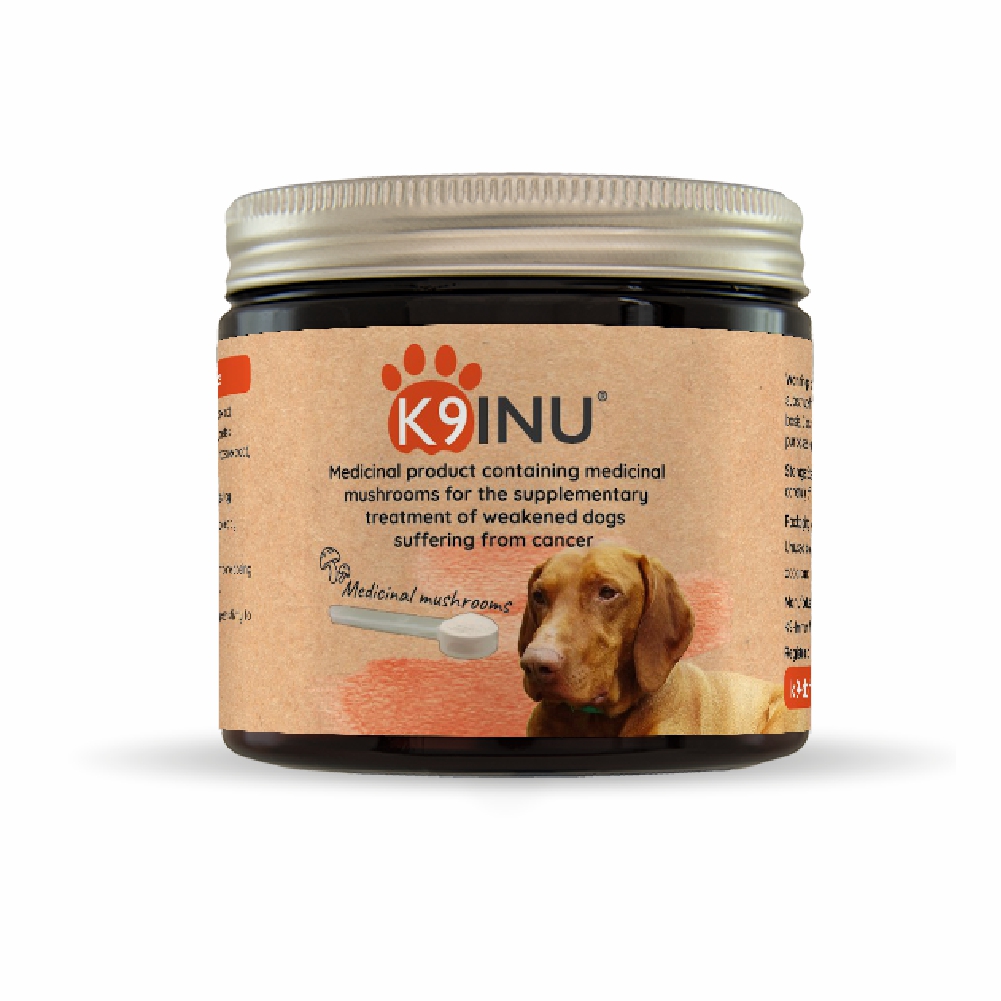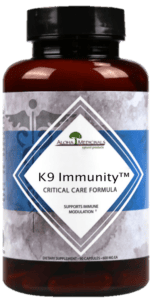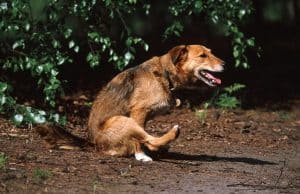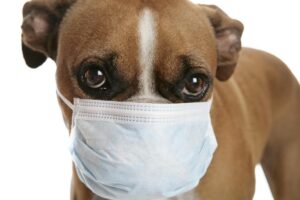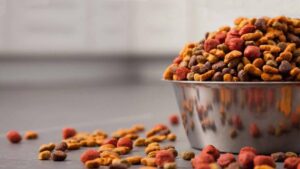Unfortunately, the exact causes of mastocytoma (mast cell tumor) in dogs are still unknown today, but it is one of the most common types of skin cancer in dogs.
Mast cells, or mastocytes are specialised white blood cells that play a role in, among other things, a proper immune response. They are present in most tissues of the body, but are typically found in larger numbers at the interface between the outside and the inside of the body. For example, the skin, mucous membranes (airways, digestive tract), conjunctiva, nose. They are involved in the immune response against bacteria and multicellular parasites, in the wound healing process and are the main effector cells in allergic processes.
When the body is affected by various harmful effects, mast cells produce, among other things, a substance called histamine. Histamine causes a reaction similar to an allergy symptom in the body, which “alarms” the immune system. Although these compounds are essential for the normal functioning of the body, especially for the correct immune response, their overproduction can cause serious problems.
Symptoms of mastocytoma in dogs
Unfortunately, the exact causes of mastocytoma are still unknown. It is one of the most common types of skin cancer in dogs. About 1/3 of all cancers are skin cancers, of which mastocytoma accounts for 20%.
It can occur anywhere on the body of dogs of any age, sex, or breed, however, there seem to be certain breeds that are more prone to this type of tumor. (Baegle, Boston terrier, staffordshire terrier, fox terrier, bulldog, bullmastiff, dachshund, labrador, schnauzer, American staffordshire terrier, golden retriever.) The chance of development increases with age (usually from the age of 8-9).
The most common symptom of mastocytoma, or mast cell tumour, is a growth on the surface of the skin. The growth can be very diverse, from a wart-like bump to an ulcerated sore. Most often they are solitary, but sometimes several grow side by side, usually on the trunk and limbs, less commonly on the head and neck. Mastocytoma is also characterised by a variation in the size of the growth, increasing and decreasing, even from day to day. The growths are typically painless, but if they are very swollen or ulcerated, they may be painful.
Systemic symptoms of mastocytoma in dogs
Depending on the location and size of the tumor: loss of appetite, vomiting, bloody vomit, diarrhoea, abdominal pain, dark or black stools, itching, lethargy, cough, difficulty breathing, irregular heart rhythm and blood pressure, various bleeding disorders, delayed wound healing, enlarged lymph nodes.
Treatment of mastocytoma in dogs
The most effective way to treat mastocytoma is almost always to surgically remove the tumour, if it can be adequately circumscribed. Usually, not only the tumour itself but also some of the surrounding tissue that is still healthy is removed to ensure a successful operation. Because of the nature of this type of tumour, which spreads easily, quickly and insidiously throughout the body, surgery is usually followed by chemotherapy or radiotherapy. This kills any remaining tumour cells.
Surgery and chemotherapy effectively remove most of the tumour, but this is only half of the healing process. These interventions do not cure the cancer, they do not correct the immune system dysfunction that allowed the tumour cells to develop.
However, when surgery and chemotherapy are used to remove the bulk of the tumour cells that are causing so much damage to the body. Along with immunomodulatory therapy (K9 INU® and K9 InuExtra®) trigger the body’s own line of defence, the immune system into action. The chances of the dog beating the tumour and living a normal lifespan are excellent.
Strengthening the immune system is essential in cancer (Lymphoma, Osteosarcoma, Mastocytoma, Hemangiosarcoma in dogs, Dog mammary tumour, etc.) or any other disease resulting from an immune disorder! Until the body reacts to the disease on its own, there is no real cure, only symptomatic treatment.
That’s why many vets say, rightly, that you can only prolong the life of your dog, but the tumour is still there. Surgery and radiotherapy are essential to remove the tumour that has already grown. However, the body’s own strength is needed to help the dog beat the disease.
In addition to veterinary treatments, it is crucial to place great emphasis on strengthening the immune system!
A proper diet is essential
Cancer is one of the most common causes of death in dogs. Many experts believe that the main reason for this is an improper diet. We usually feed our pets foods based on cereals, even though dogs do not naturally graze on wheat fields. Dogs do not have the enzymes to digest and utilise grain. They are basically carnivores!
When a carnivorous animal eats a grain-based diet, its body does not get (or cannot process and utilise) the nutrients it needs. This can lead to a high risk of immune disorders, including cancer.
If inappropriate diet is indeed one of the main causes of cancer, then it is clear that a good diet is essential for dogs with cancer. In fact, proper diet is one of the most important factors in successful cancer treatment! To really give our dogs everything they need to fight cancer, we need to provide them with the right nutrients. Just because a dog food is expensive, highly recommended or has a trendy name, doesn’t mean it’s the best for a dog with cancer.
For more information, read our article FEEDING A DOG WITH CANCER.
K9 Immunity™
Immunomodulating food supplement for dogs with the natural power of 6 different medicinal mushrooms.
K9 Immunity™ was developed for guide dogs suffering from cancer, but is now available for all dogs. It has already been used with outstanding success in more than 10,000 dogs suffering from cancer!
K9 Immunity™ contains immunomodulatory ingredients called heteropolysaccharides, including PSK, PSP and Lentinan, which are the three most commonly used anti-cancer compounds. It also contains nearly 200 other closely related polysaccharides that help the immune system function properly.
K9 Immunity™ is made from 100% USDA (US Department of Agriculture) and EU Certified Organic approved ingredients, manufactured to strict GMP (Good Manufacturing Practice) standards and FDA (US Food and Drug Administration) recommendations. All-natural, non-toxic, 100% certified pure ingredients manufactured by Aloha Medicinals Inc.
